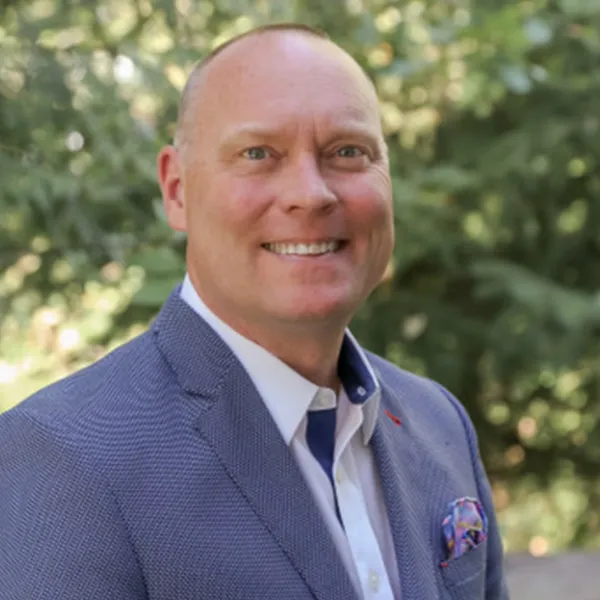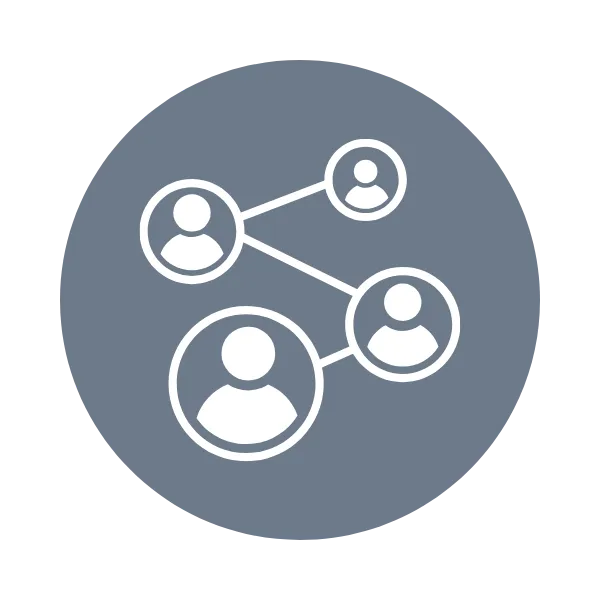Our Mission:
To Empower Individuals and Organizations to FLOURISH.
Our tools and practices empower a strengths-based approach that deeply listens to and honours the unique story of each person and organization—sparking meaningful insight, growth, and transformation.
Our Story
Dr. Wayne Hammond has spent his career exploring how people move from simply coping to truly flourishing. Grounded in neuroscience, clinical psychology, positive psychology, and resilience science, his work is guided by a core belief: that every individual and organization holds the potential to grow, adapt, and thrive—especially when facing life’s challenges.
As the Founder and Chief Executive Officer of Flourishing Life Technologies, Wayne leads the development of evidence-based tools and strategies—including the Flourishing Life Questionnaire (FLQ)—designed to help individuals, teams, and organizations build capacity for resilience, well-being, and performance success.
His approach is rooted in positive psychology that embraces a strengths-based growth mindset—the belief that strengths can be developed and that setbacks are opportunities for learning and growth.
Wayne also serves as an Adjunct Associate at Ambrose University, contributing to the training of future leaders in positive mental health, strengths-based practice, and systems change. His work is centered on translating research into action, promoting positive well-being, and empowering people to navigate adversity with confidence and clarity.
Earlier in his career, Wayne spent over a decade in clinical practice, supporting youth, families, and professionals in high-complexity settings. From the Foothills Hospital’s Adolescent Addiction Centre to Wood’s Homes and forensic mental health services, he developed and applied innovative strengths-based assessment and intervention models that continue to shape his work today.
Wayne’s life’s work is defined by a deep commitment to helping people recognize their strengths, embrace growth, and build flourishing lives—personally, professionally, and within the systems they serve.

At Flourishing Life, we believe that when people flourish, everything around them does too.
Flourishing individuals build stronger families, more innovative teams, healthier schools, and more resilient communities. That’s why we’re here—to make that possible, starting with you.
Rooted in over 30 years of research and practice, our work blends the science of resilience, positive psychology, and human performance into practical tools and strategies.
Our Flourishing Advantage framework is designed to uncover strengths, spark transformation, and empower people and organizations to thrive from the inside out.
Whether you’re a leader, educator, or individual seeking change, our mission remains the same: to unlock potential, foster well-being, and build a future where flourishing is not just possible—but sustainable.
Meet our Team of Professionals
At the heart of the Flourishing Life is a dedicated and diverse team passionate about unlocking human potential and fostering thriving cultures. Driven by purpose and guided by strengths-based principles, our team is committed to co-creating meaningful change with the organizations and individuals we serve.

Dr. Wayne Hammond
CEO, Flourishing Life

Jeff Wilson
Lead Operations & Technology

Marsha Staton Sweet
Operations & Client Success

Abe Brown
Advisor

Jeff Williams
Advisor
"When we focus on a person's strengths and ability to succeed - instead of mitigating or managing their weakness - we empower their capacity to thrive."
- Wayne Hammond, Ph.D
Stay Connected. Keep Growing.
Flourishing is a journey—and we’re here to walk it with you.
Join our newsletter for the latest insights, tools, and stories to help you, your team, and your organization thrive. You'll also get access to new blog posts exploring emotional health, leadership, personal growth, and purpose-driven culture.

Thriving Teams Start with Thriving People: Why Employee Well-Being is a Performance Strategy
Thriving Teams Start with Thriving People
Why Employee Well-Being is a Performance Strategy
You Don’t Need to Choose Between Well-Being and Performance
For too long, employee well-being and organizational performance have been treated as separate agendas—one driven by HR, the other by operations or strategy.
But the science is clear: thriving individuals build thriving teams. When people feel seen, supported, and equipped, they don’t just feel better—they perform better.
And when we shift from viewing well-being as a “perk” to a core business strategy, we unleash untapped potential in our people and our culture.
What It Means to Thrive at Work
Thriving is more than just avoiding burnout or bouncing back from stress. It’s about showing up with:
Clarity and confidence
Emotional agility and grit
Meaningful motivation and purpose
It’s the daily experience of growing, contributing, and feeling valued. And when that becomes the norm—not the exception—performance skyrockets.
“Thriving employees are 3x more likely to feel engaged, 6x more likely to feel resilient, and 12% more productive on average.” — Flourishing Advantage Data Insights
Why It Matters: People Drive Performance
Organizations are not just systems—they’re human ecosystems. Every goal, project, and metric ultimately relies on the energy, focus, and collaboration of people.
When employees are mentally strained, emotionally disconnected, or simply running on empty, it doesn’t just affect morale—it undermines outcomes.
Thriving teams are built when we:
Normalize conversations around mental fitness and psychological safety
Train leaders to be culture-shapers, not just task managers
Embed well-being into the rhythms and rituals of work
And it starts by understanding the human brain—not just as a tool for thinking, but as the engine for engagement, innovation, and resilience.
Four Human-Centered Strategies for Building Thriving Teams
These brain-based, strengths-informed strategies will help you nurture a high-performance culture—starting from the inside out.
1. Shift from “Fixing Problems” to “Fueling Potential”
“People grow fastest when we focus on what’s strong, not just what’s wrong.”
Why It Matters:
Deficit-based cultures focus on gaps, mistakes, and what’s broken. But that only reinforces threat responses and disengagement.
Strengths-based environments do the opposite—they unlock confidence, agency, and ownership. When employees know their strengths and feel empowered to use them, engagement rises and performance becomes a natural byproduct.
✅ Try This: Strength Activation Practice
In team meetings, ask:
“What’s a recent win, and what strength helped you create it?”
“How can you use that strength again this week?”
This primes the brain for growth and aligns performance with purpose.
2. Create Safety Before You Expect Innovation
“Psychological safety isn’t soft—it’s the foundation of smart risk-taking.”
Why It Matters:
Teams don’t thrive when they’re afraid to speak up, make mistakes, or challenge the norm. Innovation, collaboration, and excellence require a sense of safety—both emotional and psychological.
What It Looks Like:
Leaders model vulnerability and self-regulation
Mistakes are treated as learning moments
Feedback loops are safe, clear, and future-focused
✅ Try This: Safety Check-In Ritual
Start your next meeting with:
“What’s something that’s going well for you this week?”
“What’s something that’s been a stretch?”
This creates connection, lowers stress reactivity, and builds a relational safety net that supports performance pressure.
3. Rewire Stress as a Source of Insight, Not Just a Threat
“Stress is not the enemy—it’s a message.”
Why It Matters:
Left unchecked, stress depletes energy and narrows focus. But when teams learn to reframe stress as a signal, it becomes a catalyst for growth.
Key Shift:
Instead of asking, “How do we reduce all stress?”
Ask, “How do we build the capacity to channel stress toward growth?”
✅ Try This: Team Resilience Loop
At project check-ins, ask:
“What challenges are we facing?”
“What strength or value do we want to lead with to move through it?”
This reinforces adaptive mindsets and psychological flexibility—key traits of high-performing teams.
4. Anchor Identity to Contribution and Growth
“People thrive when who they are aligns with what they do.”
Why It Matters:
Work isn’t just a series of tasks—it’s a story we tell ourselves about who we are. When employees feel like their work reflects their values and strengths, they show up with more energy and commitment.
What It Looks Like:
Employees can name how their role contributes to something meaningful
Strengths and growth goals are discussed regularly
Development is framed as identity-building, not just skill-building
✅ Try This: Identity-Based Goal Setting
Encourage team members to set performance goals tied to identity. For example:
“I want to lead this project to strengthen my strategic thinking.”
“I’m working on feedback skills because I see myself as a culture-builder.”
This deepens engagement and fuels internal motivation.
💡 Final Thought: Culture is Built in the Small Moments
You don’t need a massive overhaul to start building a thriving team. You need consistent, intentional steps that support people in showing up as their best selves.
Celebrate progress
Normalize rest and recovery
Anchor goals in growth and contribution
Because when people thrive, performance follows.
🔎 Next Steps: From Intention to Implementation
Ready to activate well-being as your organization’s next competitive advantage?
Here’s how to begin:
✔️ Start with a Flourishing Life Assessment for your team
✔️ Book a Discovery Session to explore a pilot initiative
✔️ Launch a Thriving Team Workshop Series in your workplace
Let’s rewire the workplace—starting with your people.


© 2025 Flourishing Life Technologies, Inc.
All Rights Reserved








